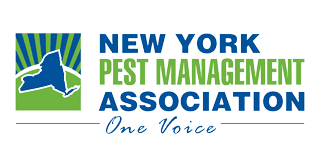The holiday season is approaching, and there are cookies to bake, meals to create, and gingerbread houses to decorate. Unfortunately, this is also when people go into the cabinet to pull out a rarely used ingredient and find it filled with pantry pests. Whether you opened a flour bag to find bugs crawling in it or are looking for ways to prevent these pests in Albany, this article is for you.
We’ll start by explaining what pantry pests are and describing which types you might encounter. We’ll also explore how these insects get inside your home and give tips to keep them out. Read on to learn how to keep your pantry pest-free with the experts from Absolute Pest Control.
What Kinds Of Pantry Pests Can You Expect To Find In Albany?
Pantry pests infest food stored in cabinets and pantries, including flour, chocolate, spices, and cereal. These pests can be a real nuisance and are costly regarding food waste. Two common pantry pests are weevils and beetles, and they can enter your home from outdoors or inside contaminated packages from the store.
These pests breed rapidly and can contaminate your entire cabinet quickly. Products stored in paper bags and boxes are especially susceptible because the small size of these pests allows them to squeeze past the seals. If you have trouble with pantry pests in Albany, contact Absolute Pest Control for assistance.
What Are Weevils?
The rice and granary species are the two most common types of weevils in the pantry, damaging food like cereal grains, flour, rice, and macaroni. Adult rice weevils are dull red-brown to black, are about 3/32 of an inch long, and have wings that allow them to fly. Granary weevils are polished red-brown to black, about 1/5 of an inch long, and aren’t able to fly.
Weevils lay hundreds of eggs in the food they infest, and you may also notice white grub-like larvae in packages. The life cycle from egg to reproductive adult takes about a month, so infestations can quickly spread throughout your pantry. If you need assistance eliminating these pests from your home, contact us at Absolute Pest Control.
What Are Pantry Beetles?
Several pantry pest beetles, including warehouse, merchant grain, and flour beetles, can also infest your cupboards. These beetles are typically no larger than 1/8 of an inch long, and the color varies depending on species, but most are brown or black. Pantry beetles infesting food can cause problems such as:
-
They cause food contamination from their bodies and byproducts.
-
Warehouse beetles can leave hairs in food that can irritate your mouth, throat, and stomach.
-
Some species produce secretions that give food a foul taste and smell.
-
These pests can introduce microbes that produce carcinogenic mycotoxins.
If you see any beetles, larvae, or eggs in your food, dispose of it immediately. Contact us today at Absolute Pest Control if you need assistance eliminating these pantry pests from your home.
Keeping Your Pantry Pest-Free!
After you eliminate pantry pests from your home, it is time to ensure you won’t have another infestation. Here are some tips to help prevent kitchen pantry pest problems:
-
Regularly check the expiration dates on packages and dispose of anything that has expired.
-
Carefully inspect grocery items for damage before buying them.
-
Purchase airtight containers to store packaged food.
-
Periodically, take everything out of the cabinets and thoroughly clean and vacuum.
If you have trouble getting rid of these pests, the pros at Absolute Pest Control are here to help. Contact us today to learn more about our home pest control services in Albany or to schedule a service.








